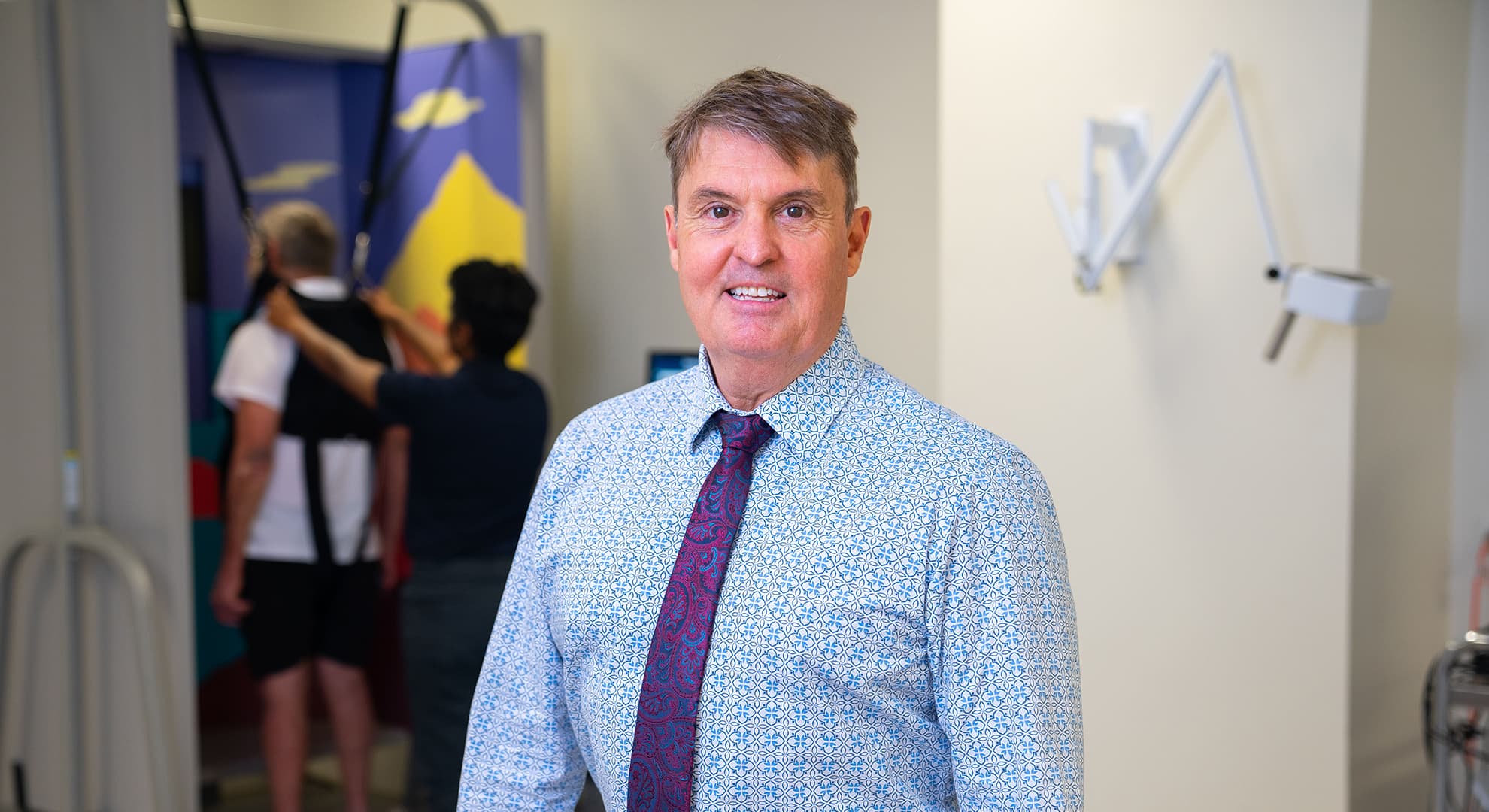 Professor Rob Newton.
Professor Rob Newton.
It is well-known exercise has many benefits, but new Edith Cowan University (ECU) research has revealed just how critically important it can be – even for people with advanced cancer.
Previous work from ECU’s Exercise Medicine Research Institute has shown men with advanced prostate cancer can change the chemical environment of their body over six months of exercise training to suppress growth of cancer cells.
The team observed increased levels of proteins called ‘myokines’ which are produced by skeletal muscles and can suppress tumour growth and even help actively fight cancerous cells by stimulating a range of anti-cancer processes in the body.
But a new EMRI study has shown a single bout of exercise can elevate myokines even further and induce additional cancer suppression.
Importantly, this exercise induced medicine occurs in patients with incurable, advanced cancer where the disease has well and truly taken hold and patients have already received extensive treatment over many years.
Nine patients with late-stage prostate cancer performed 34 minutes of high intensity exercise on a stationary cycle, with blood serum collected immediately before and after, and then again 30 minutes post-workout.
The team found the serum obtained immediately after this “dose” of exercise contained elevated levels of anti-cancer myokines resulting in suppressed growth of prostate cancer cells in vitro by around 17 per cent.
Serum myokine levels and cancer suppression returned to baseline after 30 minutes.
EMRI researcher and study supervisor Professor Rob Newton said it was a breakthrough moment in exercise oncology.
“The findings from our work are particularly exciting because we report for the first time ever that men with advanced prostate cancer are able to produce an acute elevation in anti-cancer molecules called myokines in response to a single bout of vigorous exercise,” he said.
“This is helping us to understand why patients with cancer who exercise exhibit slower disease progression and survive for longer.”
“These patients are palliative, so there is no cure and they will eventually succumb – however, there is evidence that exercise will extend survival and the increased myokine levels explored in our recent paper is a prime mechanism.”
Professor Newton said while there is much research still to be done, the results of this study could help shape the advice given to cancer patients immediately.
“The optimal dose of exercise is not yet known, but it is likely to be 20-plus minutes each day and must include resistance training to grow the muscles, increase the size and capacity of the internal pharmacy, and stimulate the myokine production,” he said.
“This study provides strong evidence for the recommendation patients with prostate cancer, and likely anybody with any cancer type, should perform exercise most days, if not every day, to maintain a chemical environment within their body which is suppressive of cancer cell proliferation.”
‘Acute effect of high-intensity interval aerobic exercise on serum myokine levels and resulting tumour-suppressive effect in trained patients with advanced prostate cancer’ was published in Prostate Cancer and Prostatic Diseases.
ECU authors on this study were Jin-Soo Kim, Professor Dennis Taaffe, Professor Daniel Galvao, Clinical Associate Professor Tim Clay, Dr Nicolas Hart, Associate Professor Elin Gray and Professor Rob Newton.
 A single bout of exercise has been found to have a significant effect on inhibiting tumour growth in people with advanced cancer.
A single bout of exercise has been found to have a significant effect on inhibiting tumour growth in people with advanced cancer.



